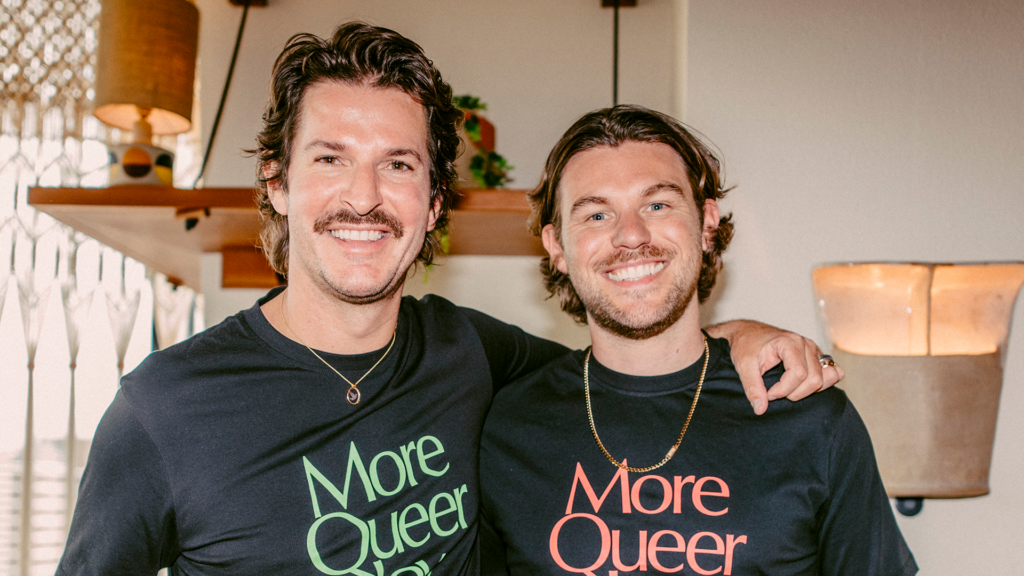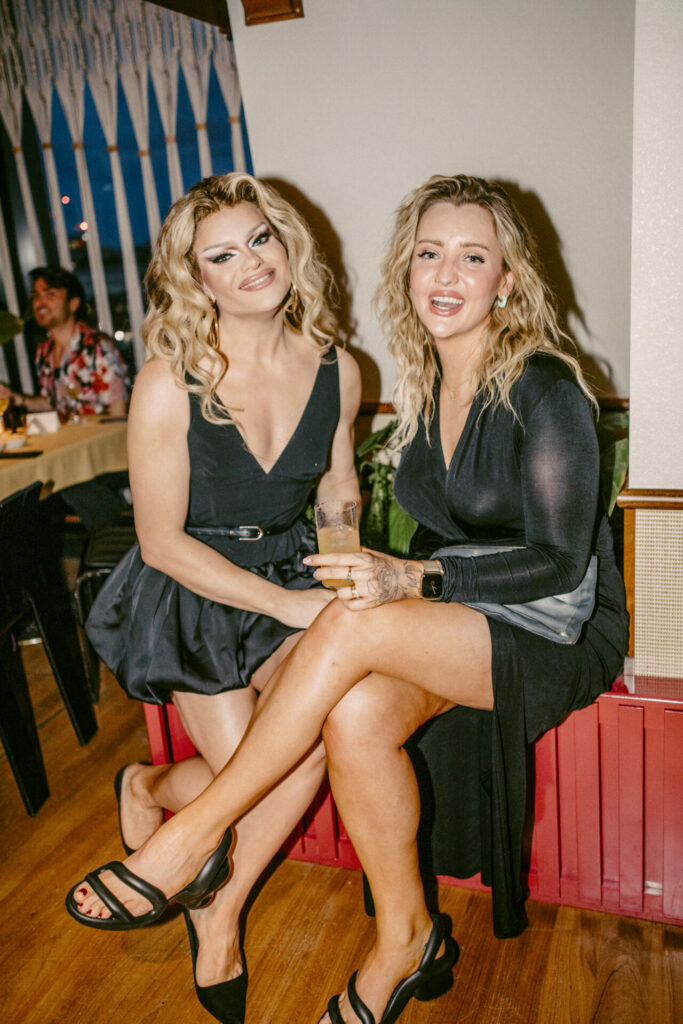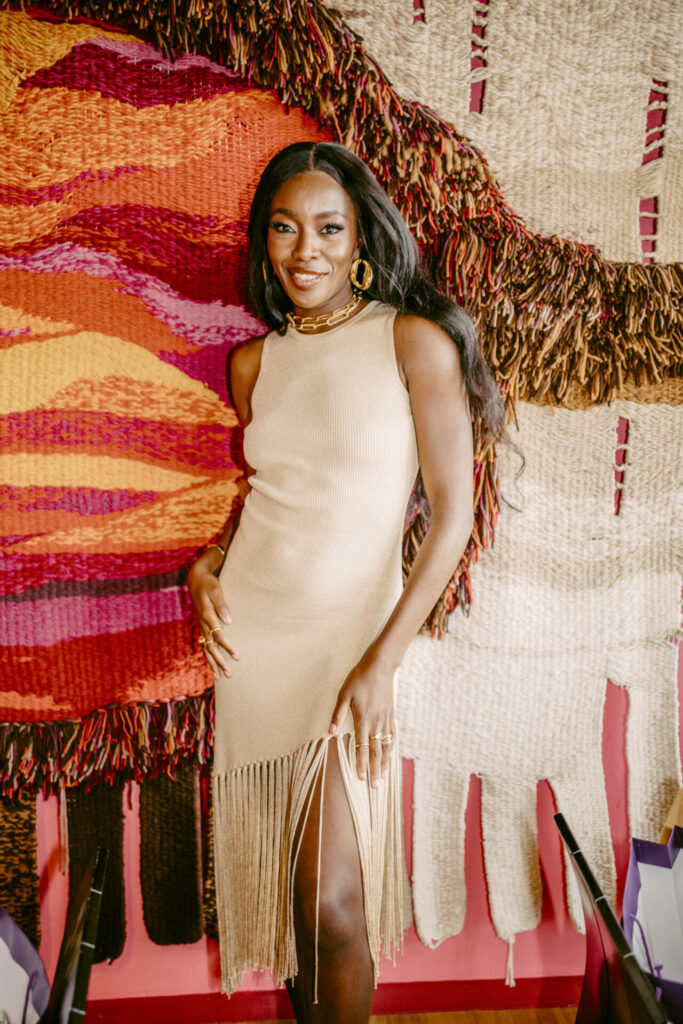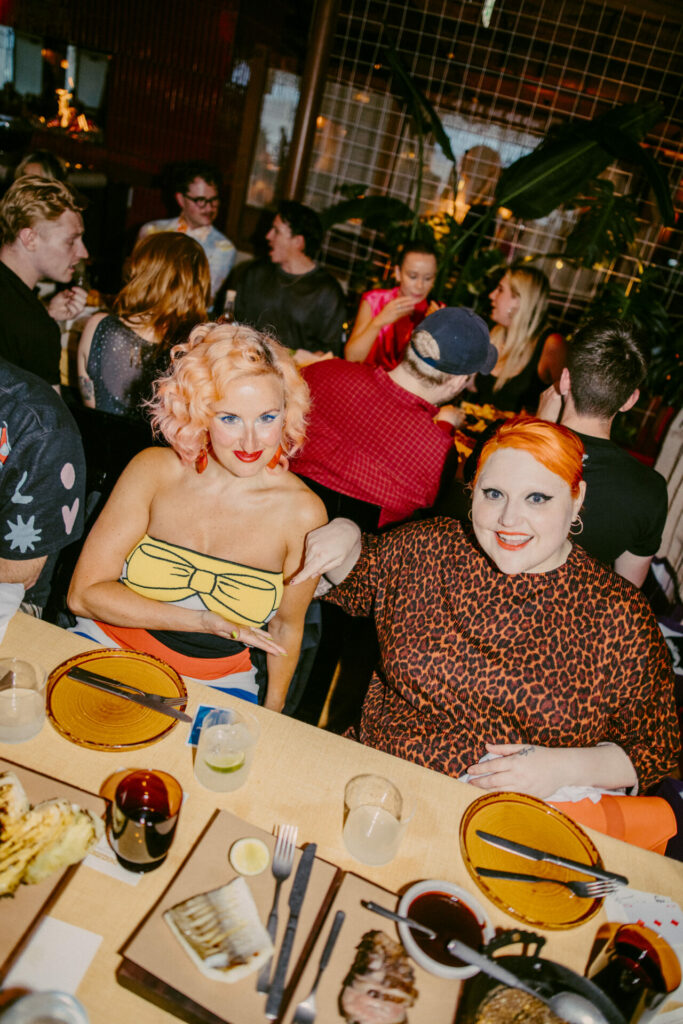Pink Noise Foundation: Queer fund from Sink the Pink and Mighty Hoopla founders goes public
Exclusive: "We're always looking at ways that we can support everyone within the community," Glyn Fussell has told Attitude

A fund set up to support queer artists and organisations, the Pink Noise Foundation, has gone public in true, colourful queer style.
The fund, set up by Mighty Hoopla’s Glyn Fussell and Jamie Tagg, aims to offer financial support to the LGBTQ+ community and was born out of the legendary collective and club night, Sink the Pink.
While started before the pandemic it is now public with the hopes of bringing in more partners thereby raising more money to do more to help the community.
Speaking to Attitude after launching on Friday (14 June) Fussell and Tagg explain where the idea for the Foundation came from, how it works, and also what’s next for Mighty Hoopla.
What is the Pink Noise Foundation and where did the idea come from?
Glyn Fussell: It was born from Sink the Pink. The larger we got throughout the years, we were working with a lot of brands doing great work, raising money and Pink Noise was a more silent fund where we were putting money to support the most vulnerable members of our community. It really came into life in the pandemic because we’d created an ecosystem where we were supporting so many performers in their careers and financially. When that was ripped away from them in the pandemic, we were lucky that we’d been creating this fund beforehand.
Jamie Tagg: We’ve been waiting for that vehicle to present itself and we felt that with all our brands combined we’re now able to do that. We’re very lucky that we have a lot of brands that want to work with us, and a big part of the fund is allyship. If you want to work with us, you need to be part of this fund because that has direct links back to the community. Even if the brand doesn’t know exactly how to support the community, they know that by giving to this fund it goes straight into charities and projects that mean a lot to the community and to us.
GF: What we’re trying to do is engage with brands and say there needs to be a steady flow of income all year round. There are creative ways if you think outside the box, which is what we’ve spent a career doing. That’s what we hope to do with the foundation.

What’s the response been?
JT: They’ve almost been looking for this. So far, we’ve had nothing but a good response. If we did get a negative response, that would be the end of the conversation. We’re just asking to show that allyship that you say you have.
What’s the goal with this next phase of the Pink Noise Foundation?
GF: To legitimise what we’re doing but also, it’s going to be a lot easier to engage with people. Our hope is that people will see it and want to work with us. If you want to work with our community, we are a gateway to create something magical.
JT: Another big part is transparency. We have a responsibility to be super transparent and let everyone know where these funds are going. From an audience point of view, that’s something we’re very proud of, that every year we can reveal where it’s all gone. This will go straight to projects, especially those in immediate crisis.
GF: That autonomy over where it goes and being able to be reactive was an important part of why we did this. We wanted to create a foundation where we could react to what was going on in the world and move the money wherever.
I saw you’re working with Not A Phase and Rainbow Migration first.
GF: We’ve always worked with Not A Phase. I’m also a trustee. We have a long history, and they continue to do great work and get no government funding. That’s key. And Rainbow Migration, real talk, they’re at risk. They don’t get much support at all. It was important for us to work with them.
JT: We’re not trying to chop and change, give some money one year then not the next year. The bigger we can get, the more eyes we can have on it, the more funds we have, the more we can support. And it’s not about one charity getting everything, it’s about us doing as much as we can for as many as we can.

How does it work if I’m an artist or a group that needs funding?
JT: At the moment, it’s just contact. We didn’t want to spend months or years worrying about these things, we wanted to get out there and then start getting it to those who need it.
GF: We’re leaving our door open to the community to reach out and say this is what I need. It doesn’t mean we will be able to help everyone, but we can advise and hopefully support.
Has this been the dream for you two from the start?
JT: I think from the first chat we had in 2018 we said this will be the legacy of Sink the Pink in many ways. It’s all well and good putting on big parties if there’s nothing underneath it supporting the community that supported us for so long. Post-pandemic, it was hard when everything was losing money but we’re past that. We’ve been waiting for a long time.
GF: This comes very second nature to us with everything we do. We’re always looking at ways that we can support everyone within the community. There are so many intersections in the community that don’t get to enjoy our festival for instance, because they can’t physically come. Mighty Hoopla, it’s so euphoric and it’s such a shared place of joy that I think the ripple effect can reach people that can’t be at the festival and the foundation is the way we support that.
We’ve just had another fabulous Hoopla despite some negative weather forecasts. How did it go for you?
JT: It’s one of those things where when someone almost takes something away from you, when you get it, it’s that much better. It was a lot of work. Everyone wearing boots and wellies, even though the ground held up, it was a shared experience. It was my favorite one so far, it really was.
GF: It was my favorite, but mainly because of the response. You always worry when you’ve had such a good year, can we better that? For myself, your head is in such a spin after the event you don’t know what happened. You realise how good it was by how much people enjoyed it. The feedback was better than ever. So, if everybody had a good time, then we had the best time.

What’s next for Hoopla?
JT: There are always plans. We did a survey and we got thousands of responses. All of them come from a place of love. We take that on board and there’s no point in adding a bigger stage if the toilet queues are too long. There’s no point adding more artists if the bar service is poor. These are the bread-and-butter things that we try and work on every single year. These things are what makes the show better, so for us it’s about being slicker, not just better.
GF: We don’t ever take for granted how important a cultural event it is for people. The way that we will get bigger and better is to make sure that we listen.
JT: This happens once a year. There are not many events similar to this scale for our community. So, if we get it wrong, it’s not acceptable.
GF: It would be like Santa fucking up Christmas.
Have you got any ideas for the lineup and headliners next year?
GF: We may have even booked them…
JT: That’s been a real shift in the last two or three years. Now we have people knocking on our door, which is incredible. The agents tell their managers it was a great show because of the crowd. That is the crowd making it incredible. It’s the audience giving that love back to the artists and that’s why our job gets easier.
Follow along at pink-noise.co.uk
